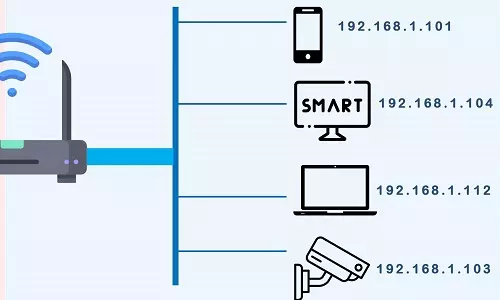Fake IPv6 Address Generator - Generate Random IPv6 Address Online
OTHER USEFUL TOOLS
What is an IP address
IP is an abbreviation for internet protocol. An IP address is a unique identifier assigned to every device on a network, whether it is in your home, workplace, even on the internet. Any device connected to the internet (or network) has to have an IP address to enable communication with other devices within the same network. Commonly used internet-enabled devices such as PCs, printers, access controllers, routers, gaming consoles, and smartphones have IP addresses assigned to them. Furthermore, with the emergence of the Internet of Things (IoT), other devices such as TVs, fridges, washing machines, WiFi cameras, and even automotive components have been given the name 'smart' to identify them as internet-enabled. All these devices are assigned IP addresses to access network resources and communicate with other devices in the network.
What are IPv6 Addresses?
There are two types of IP addresses - IPv4 and IPv6. The main difference between IPv4 and IPv6 is the notation. While IPv4 uses a decimal notation, IPv6 uses a hexadecimal notation. Further, IPv4 uses digits from 0-9 while IPv6 uses both digits (0-9) and letters (a-f).
Examples of IPv6 Addresses are:
1d7c:ede3:48d0:30d3:5749:9db7:972d:ba78
b29f:08b2:f9ac:4567:46a8:2b47:88ea:0a4e
ddff:f0fc:1ce2:67ee:9efe:2aaf:4939:8617
2b50:c10f:bf5c:6bc0:59df:c29d:8e0f:eb6d
04a0:4b9a:499b:1ea1:7a82:f7cb:3cff:408a
The design of IPv6 addresses allows up to 2128 unique combinations or 340 trillion trillion trillion unique IPv6 addresses. For comparison, there are 4.3 billion unique IPv4 addresses. As you can imagine, we are nowhere near of exhausting the IPv6 addresses. It is estimate that by 2025, there will be 27 billion IoT devices, from the 9.7 billion estimated in 2020. As you can see, the IPv4 addresses were long exhausted. The anticipation of the exhaustion of IPv4 addresses led to the development on IPv6 addressing system in 1998.
However, it is important to note IPv4 addresses are still very common, particularly in LAN and private networks.
Generating a Random IPv6 Address
Our free online generator tool gives you instant access to a random and fake IPv6 address that you can use in development, tests, or production. You can adjust the number of IPv6 addresses generated to suit your needs.
Please note:
* This is simply a generation tool. We do not store any of the IP addresses generated.
* Clicking the generation link will generate a new IPv6 address.
* Simply click on the "Copy IP Addresses" button to copy any generated IP addresses. Then paste the IP addresses to any editable document such as Notepad to use them
* All IP addresses generated are not actual and no information is searched on the existence of the IP address.
* As a random generator tool, any resemblance to the actual device's or network's IP address is coincidental.
